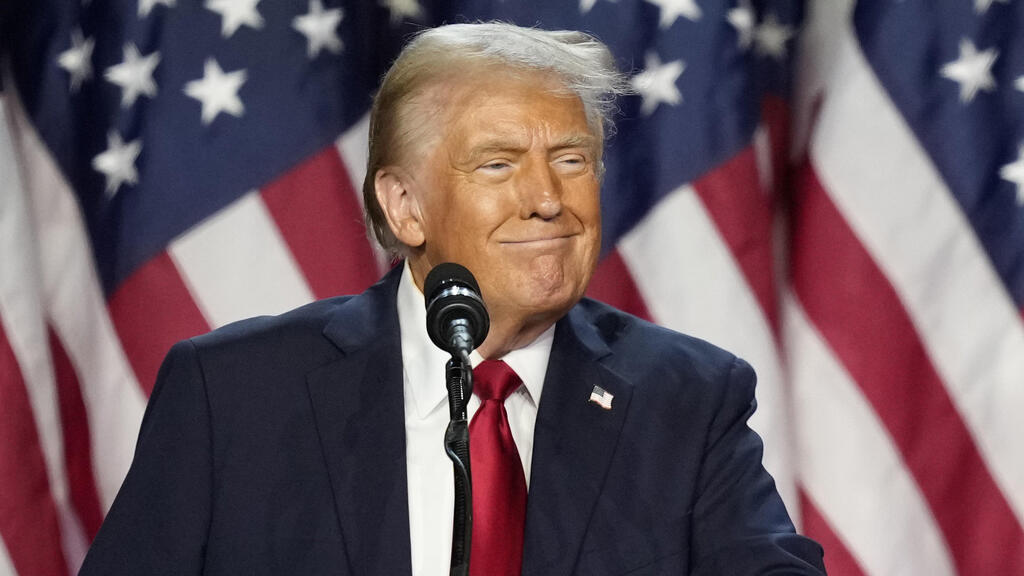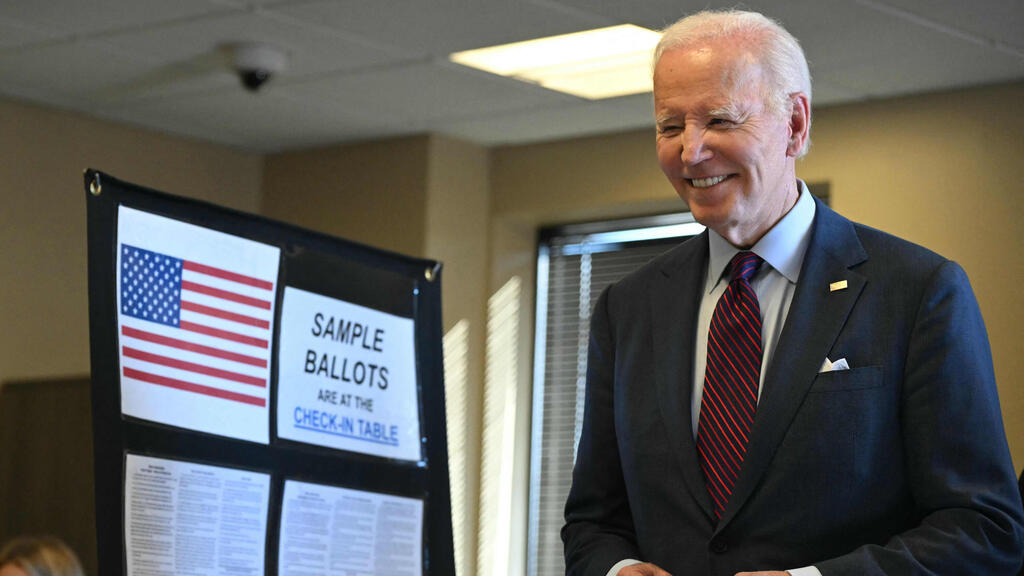Getting your Trinity Audio player ready...
“There’s room for optimism.” one of Prime Minister Benjamin Netanyahu’s advisors said on Wednesday after a sleepless night spent monitoring the U.S. election results. Shortly afterward, even before major U.S. networks declared Donald Trump the winner, Netanyahu was already among the first to congratulate him.
It could be said that Netanyahu placed all his bets on Trump’s victory. This was his preferred outcome, despite past tensions and the unflattering remarks Trump made about him. The prime minister believes he can work well with Trump and thinks those who influence him “are on the right side.” Compared to the Democratic administration that despised him and sought his downfall, Netanyahu is convinced Trump is the right choice for Israel.
Donald Trump's victory speech
(Video: Fox News)
But what does this mean for Israel? First, it’s essential to recognize that the country is entering a critical period. From now until Trump’s inauguration on January 20, U.S. President Joe Biden holds full authority to act as he wishes. Israel must consider the possibility that Biden will use this time to settle scores with Netanyahu.
Officials are concerned about a repeat of the December 23, 2016, UN Security Council resolution, when Barack Obama, in his final days in office — took the unusual step of refraining from using America’s veto power in the Council, allowing a resolution against Jewish settlements to pass. The move complicated Israel legally and opened the door to potential lawsuits in international courts in The Hague. Now, Netanyahu fears a similar scenario.
It seems Biden will use his last two months in office to ramp up pressure for a hostage deal and demand concessions from Netanyahu, such as a withdrawal from the Philadelphi Corridor and similar moves. Biden will likely push to advance the diplomatic agreement between Israel and Lebanon — a direction Netanyahu appears to support, unlike the efforts to end the war in the Gaza Strip.
Additionally, Netanyahu will aim to establish full cooperation with Trump and his team regarding postwar Israel on all fronts: Lebanon, Gaza, Iran and the hostages. It’s likely that Netanyahu will also receive an invitation to the White House shortly after the president's inauguration. Until then, he’ll need to navigate some turbulent waters over these two months.
However, no one is thinking life with Trump will be a bed of roses for Netanyahu. Trump, too, wants to end the wars in Lebanon and Gaza. He has said this several times and genuinely believes in ending these conflicts. Therefore, Netanyahu will need to coordinate with him closely to reach this goal with as many achievements — as few concessions — for Israel as possible.
The prime minister will also have to decide on his new ambassador to Washington soon. It’s likely he won’t extend Mike Herzog’s term but will instead choose a new ambassador. Netanyahu wishes to see Ron Dermer return to Washington — but Dermer is unwilling to do so. One of the candidates mentioned for the role is Netanyahu’s political advisor, Ophir Falk.
One of the key questions is who will be in Trump's inner circle. Israel hopes to see someone like Mike Pompeo as defense secretary. Trump’s former ambassador to Israel, David Friedman, could also take a prominent role, which would greatly please the Jewish settler sector.
Friedman, a staunch pro-Israel and pro-settlement advocate, has published a political plan for Israel’s future, a significant part of which involves applying sovereignty over the West Bank. Trump’s victory revives the right-wing dream of doing so.
Furthermore, the Republican victory could significantly advance normalization between Israel and Saudi Arabia. Biden's chances of securing a normalization deal in the two months he has left are low since it won’t happen without a cease-fire — and Netanyahu is more likely to save that achievement for Trump.
Another issue is Iran. On one hand, if it attacks Israel, Tehran risks a harsh response from Biden, who’s now free from political pressures. On the other hand, Iran may avoid escalating tensions with Israel just before Trump assumes office, given his aggressive stance against Iran during his previous term. Either way, Trump’s victory will factor into Iran’s final decision on whether to strike Israel or to refrain from the planned response.
Trump’s victory may also reduce the likelihood of the International Criminal Court (ICC) issuing arrest warrants for Netanyahu and Defense Minister Yoav Gallant, as Biden previously blocked sanctions against the ICC — which Trump could now threaten to reimpose.
Get the Ynetnews app on your smartphone:








